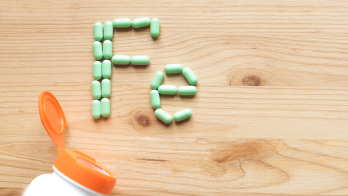Alcohol 101: What you need to know about its benefits, health implications, and more
Chronic alcohol consumption has long been associated with chronic disease, dementia, and liver damage, but light to moderate intake may actually prove beneficial. Here’s everything you need to know about alcohol and its health implications.

If you’ve ever turned to a glass of vino to celebrate a special occasion, commiserate after a long day, or ring in the new year, you’re not alone; over 69.5% of US adults say they’ve had alcohol in the past year alone [ 21
While the occasional drink isn’t a cause for concern, studies have found that excessive amounts of alcohol can wreak havoc on your health over time and lead to an increased risk of chronic disease, dementia, cancer, and liver damage [ 6
Recommended drinking guidelines
According to the 2020-2025 Dietary Guidelines for Americans, drinking in moderation is defined as no more than 2 drinks/day for men or 1 drink/day for women [ 1
The following constitutes one serving of alcohol:
12 ounces of 5% ABV beer
8 ounces of 7% ABV malt liquor
5 ounces of 12% ABV wine
1.5 ounces of 40% ABV (80 proof) distilled spirits, such as gin, rum, vodka, or whiskey.
While light to moderate drinking may not raise any red flags, problems start to arise when excess amounts of alcohol are consumed at once. The Substance Abuse and Mental Health Services Administration defines binge drinking as four or more drinks for women or five or more drinks for men on the same occasion, whereas excessive use is classified as heavy drinking five or more days of the past month [ 2 2

According to the CDC, binge drinking is one of the most common forms of excessive alcohol usage in the USA, with 25% adults doing so at least weekly [ 22 23 23
Those who are pregnant or may become pregnant; are under the legal drinking age; have certain medical conditions, or are recovering from an alcohol use disorder should avoid alcohol completely [ 1
How long does alcohol stay in your system?
Everyone metabolizes alcohol differently, for many reasons. Some people might feel the effects right away, whereas it may take others longer, if they feel any effects at all [ 3 4 5
Here are some general estimates for how long alcohol stays in your system [ 6
Small shot of liquor: 1 hour
Pint of beer: 2 hours
Large glass of wine: 3 hours
A few drinks: several hours
Because everyone is different, it’s important to keep in mind that what may be “too much” for one person may not be the same for you. Nonetheless, it’s recommended to stick to these guidelines to reduce the risk of some serious health issues.
Benefits of alcohol
Research suggests that low to moderate drinking may positively impact your microbiome, reduce your risk for certain chronic diseases, and provide cardioprotective benefits. Let’s unpack some of the reasons why alcohol consumption may be beneficial.
Improved gut health.
According to a recent study, a beer a day might keep your microbes healthy. New research has found that men who drank either one 12-ounce alcoholic or non-alcoholic lager each day developed a more diverse set of gut microbes, which has been attributed to a reduced risk of diabetes and heart disease [ 7 7
Cardioprotective benefits.
Red wine has long been hailed as the crème de la crème when it comes to healthful alcoholic beverages, and for good reason–it contains an antioxidant compound called resveratrol, which is associated with a reduced risk of coronary artery disease. Resveratrol is also associated with changes in lipid profiles, reduction of insulin resistance, and a decrease in oxidative stress of low-density lipoprotein cholesterol (LDL-C) [ 8
Reduced all-cause mortality.
Low to moderate alcohol intake (<1 drink/day for women and <2 drinks/day for men) has been associated with a lower risk for type 2 diabetes, stroke, cardiovascular disease, heart failure, and all-cause mortality [ 9
Health implications of chronic alcohol consumption
While alcohol may confer some health benefits, it does come with a few warning labels. Research shows that chronic and excessive drinking (more than 2 drinks/day) is associated with weight gain, cirrhosis, elevated blood lipids, high blood pressure, heart failure or stroke, as well as an increased risk of diabetes, cancer, dementia, inflammatory bowel disease, and brain damage, all of which can negatively impact your lifespan [ 10 11
Weight gain.
Studies have shown that alcohol can lead to overeating by inhibiting hormones linked to hunger and satiety (such as leptin), as well as influencing pathways in the brain that stimulate appetite [ 12
Additionally, alcohol packs a caloric punch at 7 calories/g, which is much higher than carbs and protein (4 calories/g), but slightly lower than fat (9 calories/g). Yet unlike these macronutrients, alcohol doesn’t offer any nutritional value or satiety benefits, so these calories are mainly “empty” and can quickly add up if you over consume.
Cancer.
If you're looking to reduce your risk of cancer, you may want to start with what you pour in your cup. Chronic alcohol consumption has been linked to an increased cancer risk, as research shows that alcohol increases DNA mutations, causes inflammation, and converts into acetaldehyde (a carcinogenic compound that increases the risk of liver, breast, pancreas, and colon cancers) [ 13 14 15
Cirrhosis.
Research shows that heavy drinkers (>5 drinks/day) and those who binge drink are at a higher risk for cirrhosis, a late-stage liver disease in which healthy liver tissue is replaced with scar tissue and the liver is permanently damaged [ 16 16
Impaired brain function.
While it may feel that alcohol provides temporary happiness, science shows that overdoing it may contribute to depression, mood swings, irritability, and increased stress levels (especially from social pressure).
Moreover, studies suggest that chronic alcohol consumption might increase your risk of dementia, cause deficits in learning and memory, impact mental disorders, and lead to cognitive decline [ 17 18
Increased inflammation.
While moderate alcohol intake may reduce inflammation, frequent and heavy alcohol use can increase inflammation and put excess strain on the liver. Since alcohol changes the chemicals that are used to break down and remove scar tissue, it can lead to increased cancer risk, high blood pressure, strokes, inflammatory bowel disease, immunity issues, and bloating [ 19 20

Best types of alcohol
While many alcoholic beverages are laden with calories and added sugars (both of which can contribute to weight gain and other health issues), there are lower calorie choices that you can feel good about sipping on. Here are some healthier options for the next time you want to imbibe.
Red wine: 105 calories per 5-ounce serving
Light beer: around 100 calories per 12-ounce serving
Tequila on the rocks: around 100 calories per 1.5-ounce serving
Champagne: 85 calories per 4-ounce serving
Vodka soda: 133 calories per 7.5-ounce serving
Hard seltzer: around 100 calories for a 12-ounce serving
Tips for enjoying alcohol in moderation
If you choose to drink, here are some tips for enjoying alcohol in moderation.
Set a drinking limit. Put a cap on the number of drinks you have, since planning ahead can help you stick to your goals.
Try tasty alternatives. Low sugar, non-alcoholic beverages (such as seltzers, flavored water, kombucha, and iced tea) can be a great replacement for your habitual glass of wine.
Follow the “every other” rule. It takes the body approximately an hour to process one alcoholic beverage, so for each one you drink, alternate with a glass of water.
Don’t give into peer pressure. If you’re out with friends, it can be easy to cave and continue to imbibe, even if you’ve surpassed your personal limit. Don’t be shy to turn down drinks, and let people know when you’ve had enough.
Summary
Alcohol has long been a pleasurable pastime enjoyed by many, and while the occasional drink isn’t cause for concern, chronic alcohol consumption can wreak havoc on your health over time. And even though light to moderate intake has been linked to improved gut health, lowered risk of coronary artery disease, and reduced all-cause mortality, chronic alcohol consumption is associated with numerous negative health implications, including weight gain, cirrhosis, elevated blood lipids, high blood pressure, diabetes, cancer, dementia, inflammatory bowel disease, and brain damage, that can take years off your life [ 10 11
Disclaimer: The text, images, videos, and other media on this page are provided for informational purposes only and are not intended to treat, diagnose, or replace personalized medical care.
Key takeaways
According to the 2020-2025 Dietary Guidelines for Americans, drinking in moderation is defined as no more than 2 drinks/day for men or 1 drink/day for women [
1
]. Binge drinking is defined as four or more drinks for women or five or more drinks for men on the same occasion [2
].Low to moderate alcohol intake can positively impact your microbiome, reduce your risk for certain chronic diseases, and provide cardioprotective benefits.
Research shows that chronic and excessive drinking (>2 drinks/day) is associated with weight gain, cirrhosis, elevated blood lipids, high blood pressure, heart failure or stroke, as well as an increased risk of diabetes, cancer, dementia, inflammatory bowel disease, and brain damage, all of which can negatively impact your lifespan [
10
,11
].Many alcoholic beverages are laden with calories and added sugars, so you can swap them out for other lower calorie drinks, like red wine, light beer, vodka soda, or hard seltzers, to reduce your caloric intake and risk of weight gain.
You can enjoy alcohol in moderation by setting a limit, drinking nonalcoholic beverages, not giving into peer pressure, and alternating your drink consumption.
References
Home: Dietary guidelines for Americans. Home | Dietary Guidelines for Americans. (n.d.). Retrieved June 30, 2022, from
http://dietaryguidelines.gov/
U.S. Department of Health and Human Services. (n.d.). Drinking levels defined. National Institute on Alcohol Abuse and Alcoholism. Retrieved June 30, 2022, from
https://www.niaaa.nih.gov/alcohol-health/overview-alcohol-consumption/moderate-binge-drinking
U.S. Department of Health and Human Services. (n.d.). Alcohol metabolism: An update. National Institute on Alcohol Abuse and Alcoholism. Retrieved June 30, 2022, from
https://pubs.niaaa.nih.gov/publications/aa72/aa72.htm
Cederbaum, A. I. (2012). Alcohol metabolism. Clinics in Liver Disease, 16(4), 667–685.
https://doi.org/10.1016/j.cld.2012.08.002
Blood alcohol content. Blood Alcohol Content - an overview | ScienceDirect Topics. (n.d.). Retrieved June 30, 2022, from
https://www.sciencedirect.com/topics/biochemistry-genetics-and-molecular-biology/blood-alcohol-content
NHS. (n.d.). The risks of drinking too much. NHS choices. Retrieved June 30, 2022, from
http://www.nhs.uk/chq/Pages/853.aspx?CategoryID=87
American Chemical Society. (2022, June 15). Lager beer, whether it contains alcohol or not, could help men's gut microbes. ScienceDaily. Retrieved June 30, 2022 from
www.sciencedaily.com/releases/2022/06/220615102932.htm
Castaldo, L., Narváez, A., Izzo, L., Graziani, G., Gaspari, A., Minno, G. D., & Ritieni, A. (2019). Red Wine Consumption and Cardiovascular Health. Molecules (Basel, Switzerland), 24(19), 3626.
https://doi.org/10.3390/molecules24193626
Chiva-Blanch, G., & Badimon, L. (2019). Benefits and Risks of Moderate Alcohol Consumption on Cardiovascular Disease: Current Findings and Controversies. Nutrients, 12(1), 108.
https://doi.org/10.3390/nu12010108
Pallazola, V. A., Davis, D. M., Whelton, S. P., Cardoso, R., Latina, J. M., Michos, E. D., Sarkar, S., Blumenthal, R. S., Arnett, D. K., Stone, N. J., & Welty, F. K. (2019). A clinician's guide to healthy eating for cardiovascular disease prevention. Mayo Clinic Proceedings: Innovations, Quality; Outcomes, 3(3), 251–267.
https://doi.org/10.1016/j.mayocpiqo.2019.05.001
Research Society on Alcoholism. (2017, June 26). Drinking makes you older at the cellular level. ScienceDaily. Retrieved June 30, 2022 from
www.sciencedaily.com/releases/2017/06/170626105322.htm
Traversy, G., & Chaput, J.-P. (2015). Alcohol consumption and obesity: An update. Current Obesity Reports, 4(1), 122–130.
https://doi.org/10.1007/s13679-014-0129-4
Ratna, A., & Mandrekar, P. (2017). Alcohol and cancer: Mechanisms and therapies. Biomolecules, 7(4), 61.
https://doi.org/10.3390/biom7030061
Strumylaite, L., Sharp, S. J., Kregzdyte, R., Poskiene, L., Bogusevicius, A., & Pranys, D. (2015). The association of low-to-moderate alcohol consumption with breast cancer subtypes defined by hormone receptor status. PLOS ONE, 10(12).
https://doi.org/10.1371/journal.pone.0144680
Pelucchi, C., Tramacere, I., Boffetta, P., Negri, E., & La Vecchia, C. (2011). Alcohol consumption and cancer risk. Nutrition and cancer, 63(7), 983–990.
https://doi.org/10.1080/01635581.2011.596642
Roerecke, M., Vafaei, A., Hasan, O., Chrystoja, B. R., Cruz, M., Lee, R., Neuman, M. G., & Rehm, J. (2019). Alcohol Consumption and Risk of Liver Cirrhosis: A Systematic Review and Meta-Analysis. The American journal of gastroenterology, 114(10), 1574–1586.
https://doi.org/10.14309/ajg.0000000000000340
Solfrizzi, V., D'Introno, A., Colacicco, A. M., Capurso, C., Del Parigi, A., Baldassarre, G., Scapicchio, P., Scafato, E., Amodio, M., Capurso, A., Panza, F., & Italian Longitudinal Study on Aging Working Group (2007). Alcohol consumption, mild cognitive impairment, and progression to dementia. Neurology, 68(21), 1790–1799.
https://doi.org/10.1212/01.wnl.0000262035.87304.89
Xue, H., Sun, Q., Liu, L., Zhou, L., Liang, R., He, R., & Yu, H. (2017). Risk factors of transition from mild cognitive impairment to Alzheimer's disease and death: A cohort study. Comprehensive psychiatry, 78, 91–97.
https://doi.org/10.1016/j.comppsych.2017.07.003
Bishehsari, F., Magno, E., Swanson, G., Desai, V., Voigt, R. M., Forsyth, C. B., & Keshavarzian, A. (2017). Alcohol and Gut-Derived Inflammation. Alcohol research : current reviews, 38(2), 163–171.
Wang, H. J. (2010). Alcohol, inflammation, and gut-liver-brain interactions in tissue damage and disease development. World Journal of Gastroenterology, 16(11), 1304.
https://doi.org/10.3748/wjg.v16.i11.1304
U.S. Department of Health and Human Services. (n.d.). Alcohol Facts and Statistics. National Institute on Alcohol Abuse and Alcoholism. Retrieved July 13, 2022, from
https://www.niaaa.nih.gov/publications/brochures-and-fact-sheets/alcohol-facts-and-statistics
Bohm MK, Liu Y, Esser MB, Mesnick JB, Lu H, Pan Y, Greenlund KJ. Binge drinking among adults by select characteristics and state — United States, 2018. MMWR 2021;70:41. doi: http://dx.doi.org/10.15585/mmwr.mm7041a2
Centers for Disease Control and Prevention. (2022, January 6). Binge drinking. Centers for Disease Control and Prevention. Retrieved July 19, 2022, from
https://www.cdc.gov/alcohol/fact-sheets/binge-drinking.htm







